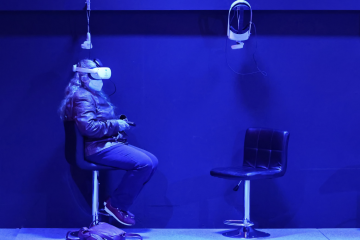Religious expression constitutes an essential part of our human rights, thus the banning of such expression from the public sphere implies a direct violation of our rights. Indeed, this type of prohibition inevitably triggers controversy, as recently observed in Quebec, where the Parti Quebecois (PQ) has introduced their proposed Charter of Quebec Values. If this Charter goes through, it will “prohibit the wearing of overt and conspicuous religious symbols by state personnel in carrying out their duties.” As it seems, everyone has something to say about it.
In a recent poll taken by the Montreal Gazette, 52% of respondents supported the Charter of Quebec Values, “which restricts wearing of visible religious symbols in public institutions.” This is an alarmingly high figure. Bernard Drainville, the minister responsible for this Charter, explains that Quebec must, “recognize and affirm some of the fundamental values that define us as Quebecers.” He adds that, “all Quebecers must be treated fairly and equally by the State.” Essentially, the PQ is presenting this ban under the justification of secularism within the context of increasing provincial multiculturalism. While religious neutrality of the state is undeniably important, the question remains: is this truly a just and effective means for dealing with increasing social diversity?
The “conspicuous religious symbols” the PQ mentions include the “hijab, turban, kippa, [and] large visible crucifix.” We are entering a situation in which those who wear hijabs, turbans, and kippas employed in the public sector will have to choose between religion and work – a clear violation of their freedom of religion and conscience, as stated in the Canadian Charter of Rights and Freedoms.
Perhaps more significant are the multiple “exceptions” recognized by this proposed charter. The ban implicitly targets symbols of Islam and Sikhism, rather than religious symbols in general. In fact, public symbols of Catholicism, such as the crucifix in the Quebec National Assembly, a significantly political environment, would remain. Drainville explained to the National Post, Sept. 10 that these measures would be taken in order to preserve “Quebecois culture.” It seems that Quebec’s Roman Catholic majority is largely unaffected by the proposed prohibition. Of course, no one can deny the preservation of a Canadian minority culture, however, does it have to be accompanied by the fundamental violation of the rights of a significant portion of Quebec citizens?
Multiculturalism has emerged as a political issue, and this is perhaps due to the fact that, in Quebec, the line between religion and politics is as hazy as the conceptual definition of secularism. These issues are highly relevant in this historic context of a preference for homogeneity. As Daniel Salée, a Political Science professor at Concordia, explains in “Cultural Survival,” Quebec is what we could call a “virtual state within a state.” Are rationales of this nature sufficient to justify the Charter of Values presented by the PQ? The attempt to respect and preserve different faith traditions and cultural distinctions by denying their existence in the public sphere seems an utter contradiction.
Rather than teach acceptance and integration, we teach the exclusion of difference. Rather than promote respect for different cultures, we promote the hiding of one’s beliefs. Rather than celebrate differences, we deny their existence.
This is not an example of neutrality. This does not form the foundation of a truly multicultural state. It is both possible and important to have an open dialogue between different cultures and religions. It is through this dialogue that we can arrive at a free and equal multicultural state. According to the Montreal Gazette, medical resident Silvana Barone and her husband Daniel Quinn, who works for the New Democratic Party, said “the Quebec government should be drawing from the strengths of its people and working toward positive change, rather than manufacturing an identity crisis.”







